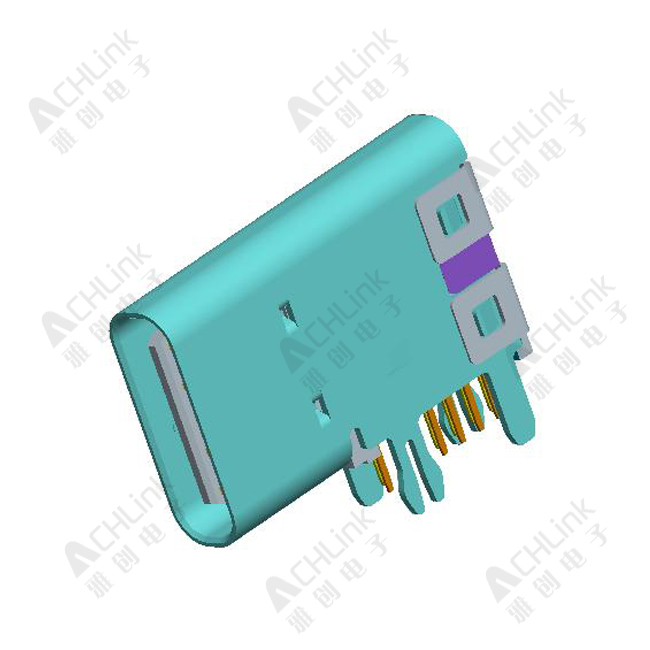Explanation of Common Types of Electrical Connectors
Date:2018-12-07 Hits:3370
Various electrical connectors are key components in numerous electronic devices, because they can realize and protect the transmission of electrical signals. From connecting key computer components to connecting wires in the cars we drive, they play a wide range of roles, and they serve different applications. Although some designs are simple, connectors are usually implemented in complex electrical systems. Therefore, connectors must be durable and reliable, and easy to assemble and use. Although not all electrical connectors can withstand extreme environments, a large number of connector specifications ensure that suitable application types can be found for customized devices.
 8P8C connector:
The name of the 8P8C connector comes from the phrase "eight locations, eight conductors". As the name implies, this connector has eight possible locations, each with a corresponding conductor. It is a modular connector originally used for telephone line applications, but it can also be used for a variety of other functions, such as Ethernet jacks. All four sizes of modular connectors are named according to their location and number of conductors, including sizes 4-, 6-, 8-and 10-. For example, 10P8C will have 10 locations and eight conductors.
The 8P8C connector itself includes plug and socket connections, with plugs and corresponding sockets. The plug has eight contacts, aligned with the eight wires of the socket, and transmits current through the connector. In addition to the use of Ethernet jacks, 8P8C connectors are also commonly used in computer applications and communication cables.
Class D micro connector:
Similar to 8P8C connectors, D-subminiature connectors are usually used for computer applications, but with different capacities: they are used as critical ports on modems (RS232). Despite the term "miniature", D-miniature connectors are now relatively large compared to other more modern computer connectors.
D-miniature connector protects and shapes connectors together with D-shaped metal components. D-miniature connectors consist of two or more rows of pins (or sockets, depending on the sex of the connector). If there is a pin, the connector is a head, called a plug, and the corresponding receiving device is called a socket, which accommodates the contacts that the pin must connect in order to transmit electricity.
USB connector:
Universal Serial Bus Connector is a small interface device that can be used to connect more than 127 devices to a computer. Standard laptops usually have at least two USB ports to support external connections through USB connectors, while standard desktop computers have four USB ports. Because USB connectors can be inserted and pulled out when connected devices are opened, they are widely used in computer systems, which constantly need to be connected and separated from external devices, which is necessary for data transmission.
8P8C connector:
The name of the 8P8C connector comes from the phrase "eight locations, eight conductors". As the name implies, this connector has eight possible locations, each with a corresponding conductor. It is a modular connector originally used for telephone line applications, but it can also be used for a variety of other functions, such as Ethernet jacks. All four sizes of modular connectors are named according to their location and number of conductors, including sizes 4-, 6-, 8-and 10-. For example, 10P8C will have 10 locations and eight conductors.
The 8P8C connector itself includes plug and socket connections, with plugs and corresponding sockets. The plug has eight contacts, aligned with the eight wires of the socket, and transmits current through the connector. In addition to the use of Ethernet jacks, 8P8C connectors are also commonly used in computer applications and communication cables.
Class D micro connector:
Similar to 8P8C connectors, D-subminiature connectors are usually used for computer applications, but with different capacities: they are used as critical ports on modems (RS232). Despite the term "miniature", D-miniature connectors are now relatively large compared to other more modern computer connectors.
D-miniature connector protects and shapes connectors together with D-shaped metal components. D-miniature connectors consist of two or more rows of pins (or sockets, depending on the sex of the connector). If there is a pin, the connector is a head, called a plug, and the corresponding receiving device is called a socket, which accommodates the contacts that the pin must connect in order to transmit electricity.
USB connector:
Universal Serial Bus Connector is a small interface device that can be used to connect more than 127 devices to a computer. Standard laptops usually have at least two USB ports to support external connections through USB connectors, while standard desktop computers have four USB ports. Because USB connectors can be inserted and pulled out when connected devices are opened, they are widely used in computer systems, which constantly need to be connected and separated from external devices, which is necessary for data transmission.

